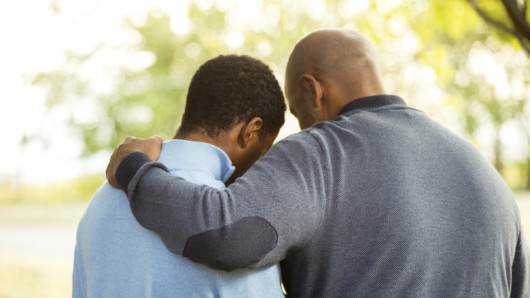Is there a person in your life who is trying to recover from or deal with addiction? Do you want to do what you can as a friend or family member to help that person?
You’ve come to the right place. In this guide, we’ll discuss what you need to consider before you talk to an addict. We’ll also give you tips on how you can encourage an addict to adapt to a healthier lifestyle.
Keep reading for more information about what you need to know about dealing with addiction.
1. Be Supportive and Patient

No matter how terrible a relative or a friend was to you, be patient with them. Don’t let their behavior affect your relationship. Remember, addiction is like a disease that causes people to act out or do wrong things.
Even when a person isn’t under the influence, the body’s need to get high or drunk can drive them to do bad things. Don’t blame or judge an addict for the actions they did while under the influence. Instead, let them know that you want to help and support them. Also, remember that change doesn’t happen overnight.
2. Learn Everything You Can About Addiction
If you want to help a person fight addiction, you need to know what you’re helping them fight. Educate yourself about what addiction is, what causes it, and how it works. Once you learn about all these things, you’ll realize how tough a drug addict’s road to recovery is.
For example, some states now allow marijuana for recreational use. Thirty-three legalized it for medical uses only. However, the legalization of this opioid reportedly worsened the US’s drug problem. If you want to learn how to talk to a drug addict right, learn about addiction first.
3. How to Talk to a Drug Addict About Their Addiction

In the same way that their words affect you, what you say also affects how an addict feels and thinks. Avoid using callous and insensitive things to them. One of the possible reasons they’re doing drugs is that it became their way to deal with feelings of hurt.
Use encouraging language, and point out specific things you’re noticing and how it’s affecting your relationship. Insert words of support and remind them that you have their back. Talk to them as you’d want others to tell you about your mistakes or bad habits.
4. Introduce New Hobbies or Activities
An addict’s life likely revolves around the source of addiction. Help them get out of this destructive orbit by encouraging them to try new things. Getting a friend or relative to focus on something else helps them fight addiction. It’s also a great way to give them something else to do with their free time. Make sure you introduce them to something engaging, enjoyable, and constructive. It can be anything from hiking or joining a boxing gym to tabletop games like Dungeons and Dragons.
5. Go Back to Old Personal Joys
There’s no doubt that a drug addict feels lost to some extent. Re-introduce an addict to an old hobby or passion that got neglected or forgotten about. This is a great way to get a loved one to find himself or herself again. Whether it’s video games or cooking, help them experience their old beloved hobbies again. Don’t hesitate to join them when they go back to it. Being with someone else can help them talk about old memories and joys that’ll make them realize a few things.
6. Work out With a Recovering Addict

If you know someone who is trying to change his or her lifestyle, help them out by offering to exercise with them. You can act as a jogging buddy or a spotter at the gym. Encouraging exercise helps an addict improve his energy levels and live healthier. Getting through addiction can be easier when the addict focuses on routine exercises. This helps improve not only the wellbeing but also willpower. It also works as an exhausting but satisfying distraction from the call or urges to use again.
7. Eat Right, Eat Together
Encourage the whole family to eat together. Being in a family setting does a lot for a recovering addict. It helps not only them but the rest of the family reconnect and share their stories. Don’t forget to prepare healthy foods. This includes avoiding alcohol, which is a leading source of addiction that often gets ignored.
In the United States, alcohol is the third-leading preventable cause of death. Remember, it classifies as a depressant and has serious effects on the mind and body when abused.
8. Take Small Steps to Reach Personal Goals
Dealing with addiction is no easy task. It takes a lot of willpower and strength to fight the urge to use drugs again. An addict has a higher chance of beating his addiction when he takes small steps.
This starts with acknowledging the problem and talking about addiction. Later, they can take steps like reducing their drug use or alcohol intake. Even when they take some steps back, the important thing is that they take more steps forward.
9. Help Find a Therapist for the Addict

The smallest of actions can help a recovering addict in huge ways. That includes doing the research and helping a friend find the right therapist. You don’t need to book appointments or pay for their therapy.
The simple act of giving them the addresses and names of a therapist is enough. However, if they don’t want to undergo therapy, be respectful of that. An alternative to private therapy is groups and programs like AA or Narcotics Anonymous (NA).
10. Know What to Expect
Don’t get surprised if your efforts get rejected. It’s normal for an addict to deny that something is wrong with them or that they need help. Not everyone is ready to accept that they’re classifiable as an addict.
Don’t take this rejection to a personal level. Instead, back off but let the person know that you’ll be there when he/she is ready for help. Raising the issue isn’t futile work since you’re planting a seed of recovery that has a chance of growing.
Help a Drug Addict Recover
Those are our ten tips for dealing with addiction and how to talk to a drug addict. We hope you learned something valuable and useful from this guide. But why stop here? If you need other content on drug addiction help, check out our other posts for additional guides and advice.



